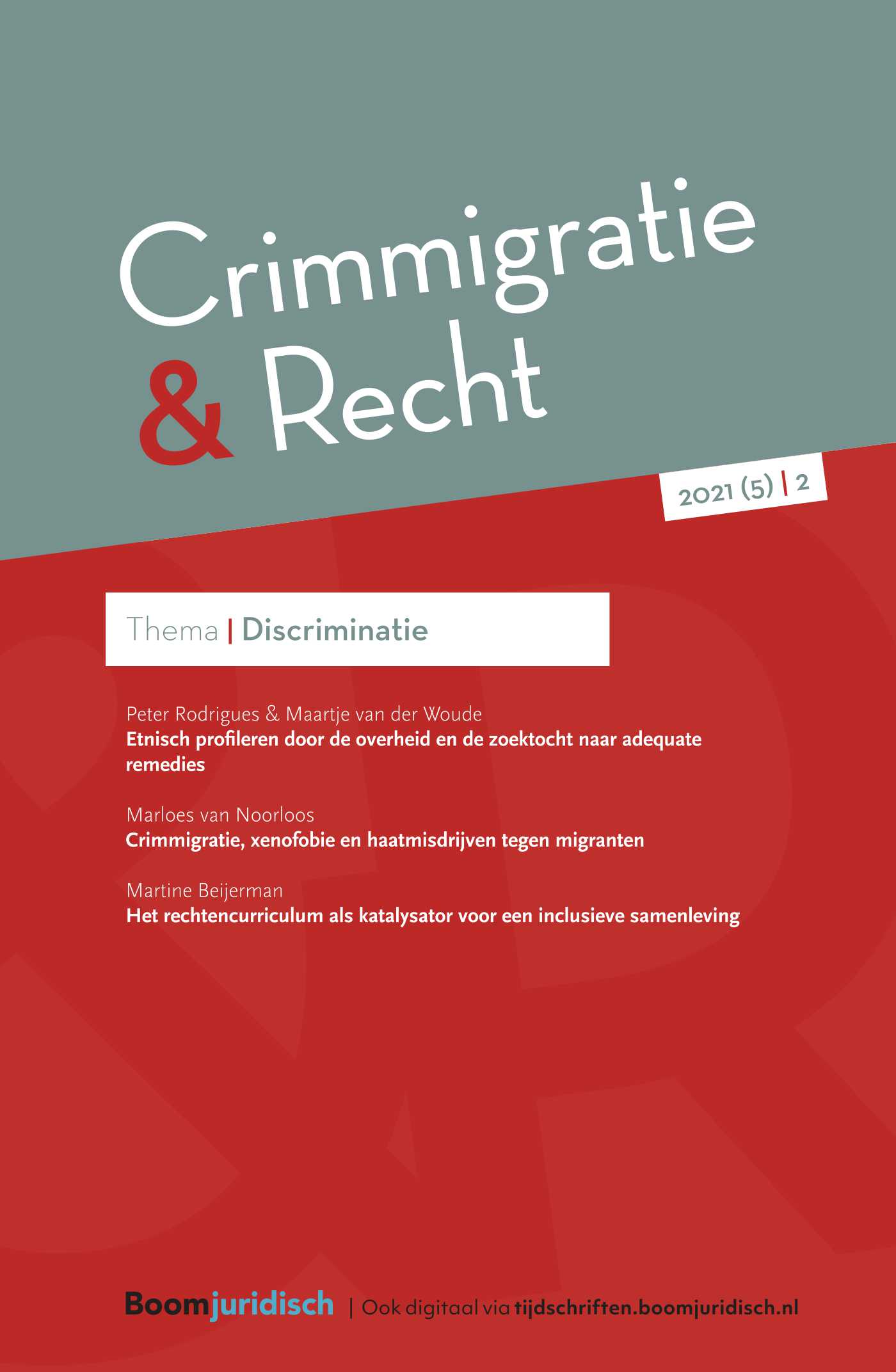|
Ethnic profiling by governments unfortunately has a worldwide interest. If we look at the Dutch situation, it turns out that the problem is not limited to the police. Serious problems also arise when it comes to checking the legality of tax benefits and detecting benefit fraud. In this contribution, the authors draw attention to racial discrimination due to the use of profiles by government institutions in the Netherlands. It seems that our anti-discrimination legislation is in good order and that raises the question of whether legal refinement is needed or whether solutions should be sought outside the legal sphere. The authors think the latter strategy and make suggestions for a more holistic solution direction. |


Crimmigratie & Recht
Over dit tijdschriftMeld u zich hier aan voor de attendering op dit tijdschrift zodat u direct een mail ontvangt als er een nieuw digitaal nummer is verschenen en u de artikelen online kunt lezen.
| Redactioneel |
Academische blikken op institutionele en alledaagse vormen van discriminatie en uitsluiting |
| Auteurs | Richard Staring |
| Artikel |
|
| Auteurs | Peter Rodrigues en Maartje van der Woude |
| SamenvattingAuteursinformatie |
| Artikel |
Crimmigratie, xenofobie en haatmisdrijven tegen migranten |
| Trefwoorden | haatmisdrijven, xenofobie, securitisering, migratiediscours |
| Auteurs | Marloes van Noorloos |
| SamenvattingAuteursinformatie |
|
Xenophobic tendencies in the migration discourse in the EU are thought to make asylum seekers and irregular migrants more vulnerable for hate crimes by individuals or groups. In a similar vein, migration control measures are said to be associated with the increase in xenophobia and hate crimes against these migrants. This article discusses the possible relationships between the process of crimmigration and hate crimes against migrants in the EU. |
| Artikel |
Het rechtencurriculum als katalysator voor een inclusieve samenlevingEen proeve van ‘systeemkritiek’ |
| Trefwoorden | uitsluiting, democratie, rechtencurriculum, perspectieven, twijfel |
| Auteurs | Martine Beijerman |
| SamenvattingAuteursinformatie |
|
Students in law school learn to understand the legal system, rulings, and laws. Teachers emphasize the importance of legal principles and democratic values such as freedom and equality. However, at the same time, the society in which the aspiring lawyers will work is often built on structures of inequality, exclusion, and injustice. Law schools have the opportunity and the moral responsibility to make their students aware of the inevitable gap between ideals and the application of laws that facilitate or sustain social injustice. To this end, some reflection on the human tendency to bias and moral overestimation is a necessary first step. This reflection paves the way for the introduction of different theoretical perspectives on justice and injustice within the legal curriculum. Students learn to question and to reconsider dominant assumptions and points of view. These skills are fundamental to develop into lawyers who not only enforce the laws as they exist today but also consider how those laws may or may not be contributing to the preservation of democratic values in our society. |
| Interview |
In gesprek met Joanne van der Leun |
| Auteurs | Maartje van der Woude en Richard Staring |
| Auteursinformatie |
| KunstBeeld |
Als een gele zomer |
| Auteurs | Emma de Gier |
| Auteursinformatie |
| Literatuur |
Boekbespreking Sinan Çankaya, Mijn ontelbare identiteiten, Amsterdam: De Bezige Bij 2020 (9de druk, 2021) |
| Auteurs | Richard Staring |
| Auteursinformatie |
| Jurisprudentie |
Overzicht Jurisprudentie maart t/m augustus 2021 |
| Jurisprudentie |
Annotatie KortThemacontrole bijstand discriminatoir? |
| Auteurs | Peter Rodrigues |
| Auteursinformatie |
| Jurisprudentie |
|
| Auteurs | Peter Rodrigues |
| Auteursinformatie |
| Literatuur |
Overzicht Literatuur maart t/m augustus 2021 |
| Wet- en regelgeving |
Overzicht Wet- en regelgeving maart t/m september 2021 |

